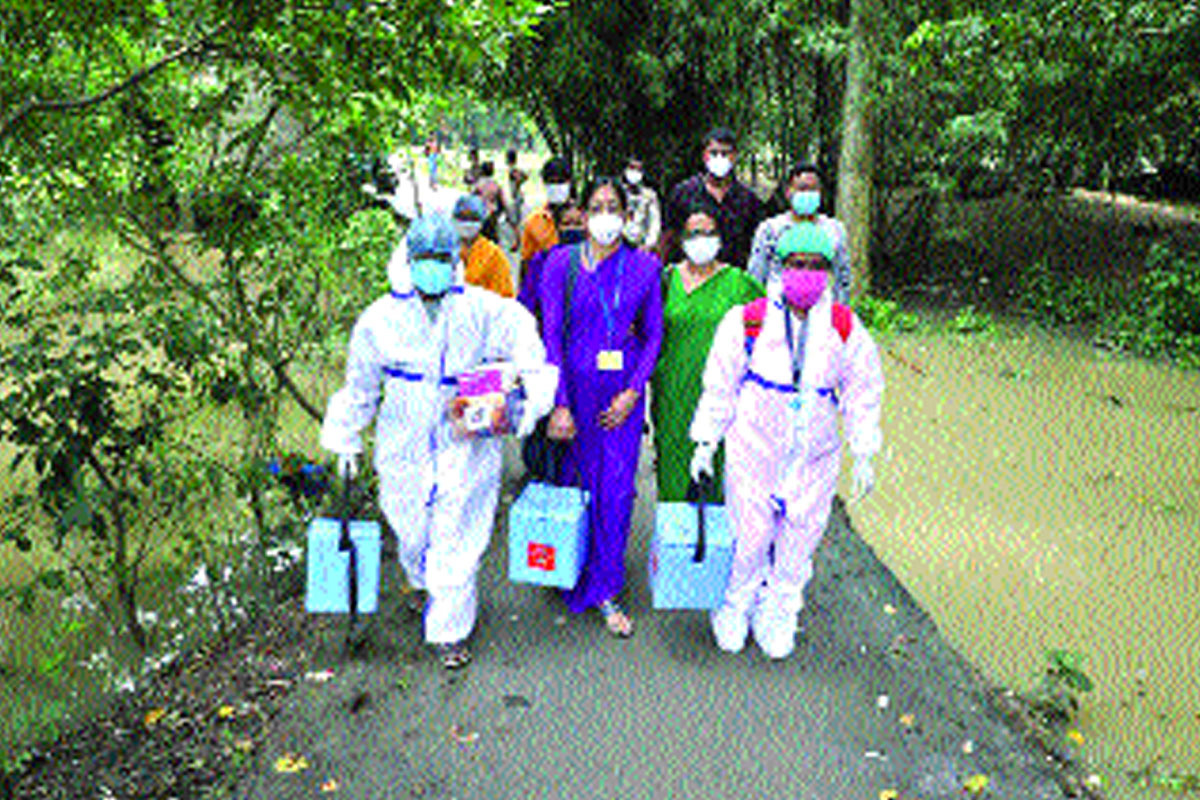63 JN.1 Covid variant cases recorded in India
As many as 63 JN.1 Covid variant cases have been reported in India so far, a source in the Union Health Ministry said on Monday.
The goal of profit maximisation acts as an incentive for the private sector to be efficient.

While the migrant crisis was the highlight of the first wave of the pandemic, unmasking the systemic failure of our economy in providing secure employment, the second wave brought to the fore the collapse of our health infrastructure. Instead of taking measured steps to deal with the shortages of oxygen cylinders, hospital beds, medicines, and vaccinations, governments conveniently chose to focus more on their election campaigning. Their ignorance towards the acute state of public hospitals and health centres has compelled common people to settle for private provision of healthcare. However, reports suggest that private nursing homes and hospitals are charging exorbitant prices for RT-PCR tests, hospital beds, and vaccines.
Severe dependence on the private sector, egged on by the government, points at the incapability of the latter to deal with a deteriorating global health crisis. It can safely be argued that with the majority of the people unable to afford the expensive health care provided by the private sector, the government has essentially left this significant fraction of the population to suffer in negligence.
Advertisement
A common perception is that, albeit expensive, the private sector is efficient in meeting the needs
Advertisement
of the people. On the other hand, public provision of services is expected to be inferior. The Indian Human Development Survey (IHDS 2011-12) data reveals the lack of confidence in public institutions. Only 9.74 per cent of the respondents reported that they have a great deal of confidence in politicians with regard to fulfilling promises made, with 50.68 per cent having no confidence at all. This glaring prevalence of mistrust that people have is not limited to the nearest agent of the State. While 71.83 per cent of the respondents believed that private schools provided quality education, the same for public schools was 59.11 per cent. Similarly, respondents showed greater conviction with regard to better treatment in private hospitals (72.46 per cent) than in government hospitals (54.45 per cent). These figures do not vary across income categories.
The data underscores the presumption regarding the government’s inefficient provisioning of basic services of food, housing, education, and health. The incompetence of the government to provide these services sufficiently, which has prevailed through generations, has ingrained the idea of inefficiency of public institutions. The normalisation of this perception implies that instead of demanding accountability from the government for its shortcomings, people deem privatisation as the only alternative.
The goal of profit maximisation acts as an incentive for the private sector to be efficient. Consequently, when services like education and health are turned into marketable commodities, profit plays a major role in determining their distribution. This excludes the majority of citizens from availing these basic services, who are then exclusively dependent on the government for their provision. Rather than aiming at efficient provisioning of the services, the government yields greater ground to private capital to invest in the same, thereby underlining an added dimension of oppression faced by poor people. This in turn perpetuates inequality in every aspect of society. The perception that normalises the poor performance of government institutions also normalises inequality in the society.
We can turn to Antonio Gramsci’s work to explain this working of the State. Instead of coercion, the State manages to create consent in favour of privatisation. There is a need to question the government regarding the poor quality of provisioning of public services like education and health. While the government has shrugged off its responsibilities, it has moulded public perception and consequently, we keep clamouring for increased privatisation. In the Gramscian sense, the manufactured consent that public institutions are more inefficient than private institutions has become an ideology. According to the IHDS data cited here, even the poorest strata have more confidence that the private sector provides better quality of services, showing that the oppressed section of the society subscribes to the dominant ideology, which is also instrumental in perpetuating their oppression. Maintaining this ideology is particularly helpful for the State as it helps to preserve the dominance of private capital.
The production of certain goods and services like health and education are advised to be the exclusive domain of the government, because their distribution should not be driven by profit, but by welfare since these should constitute the basic rights of all people. In the current situation of pandemic, the need of the hour is universal vaccination. However, such a goal will never be achieved if profit is prioritised over welfare in the distribution of vaccines.
The writers are, respectively, a graduate student at Colorado State University and a Ph.D scholar at the Centre for Development Studies, Kolkata.
Advertisement